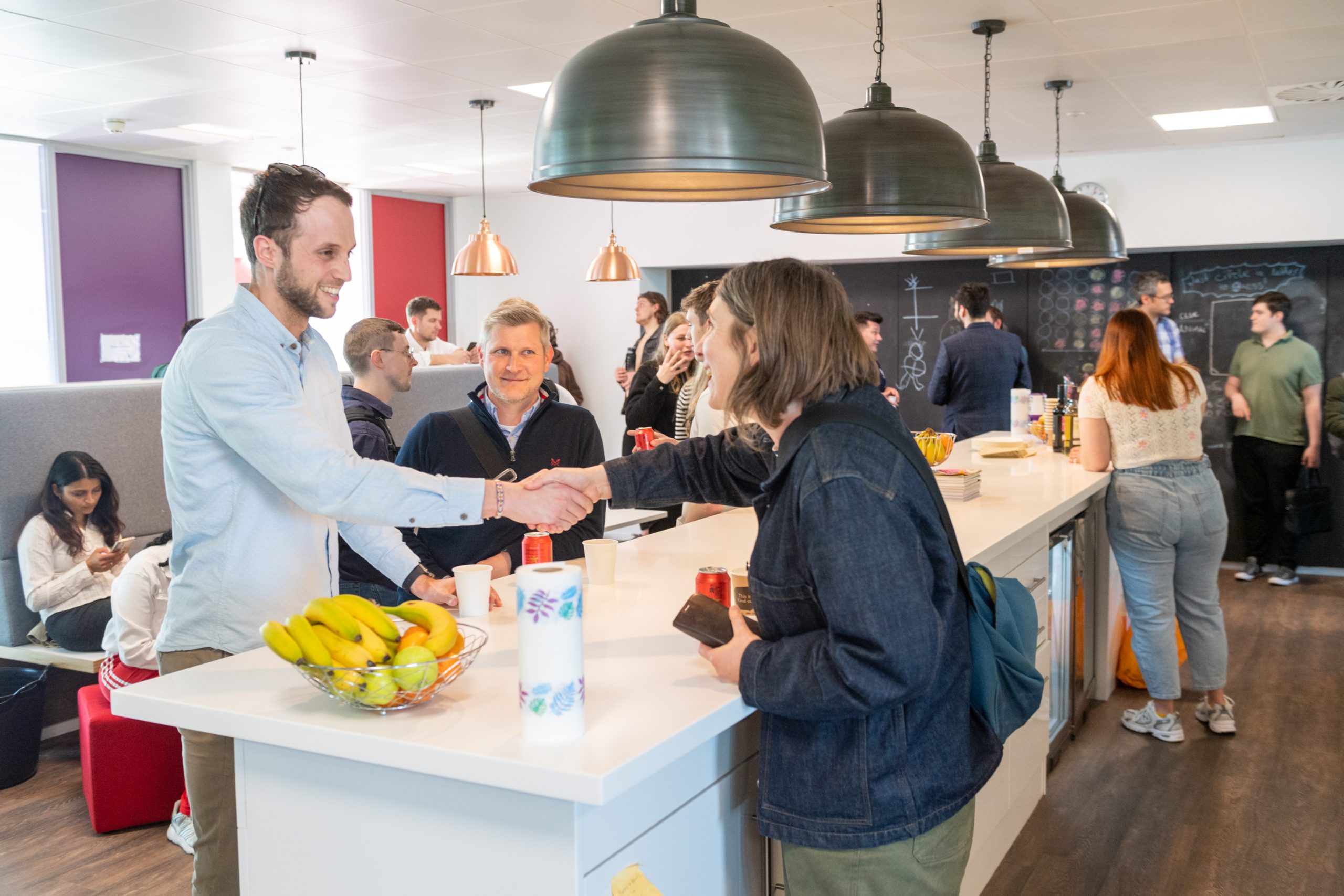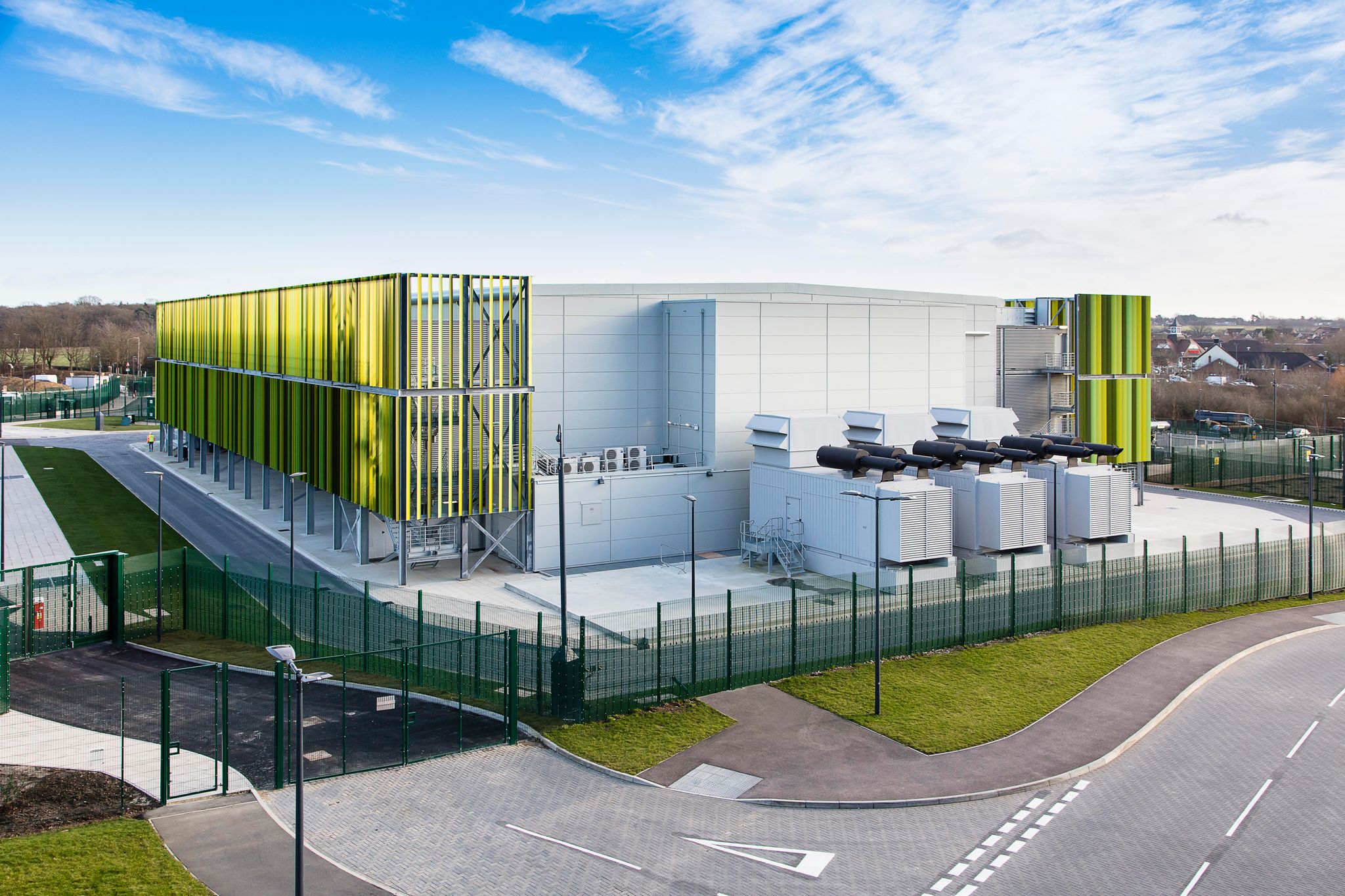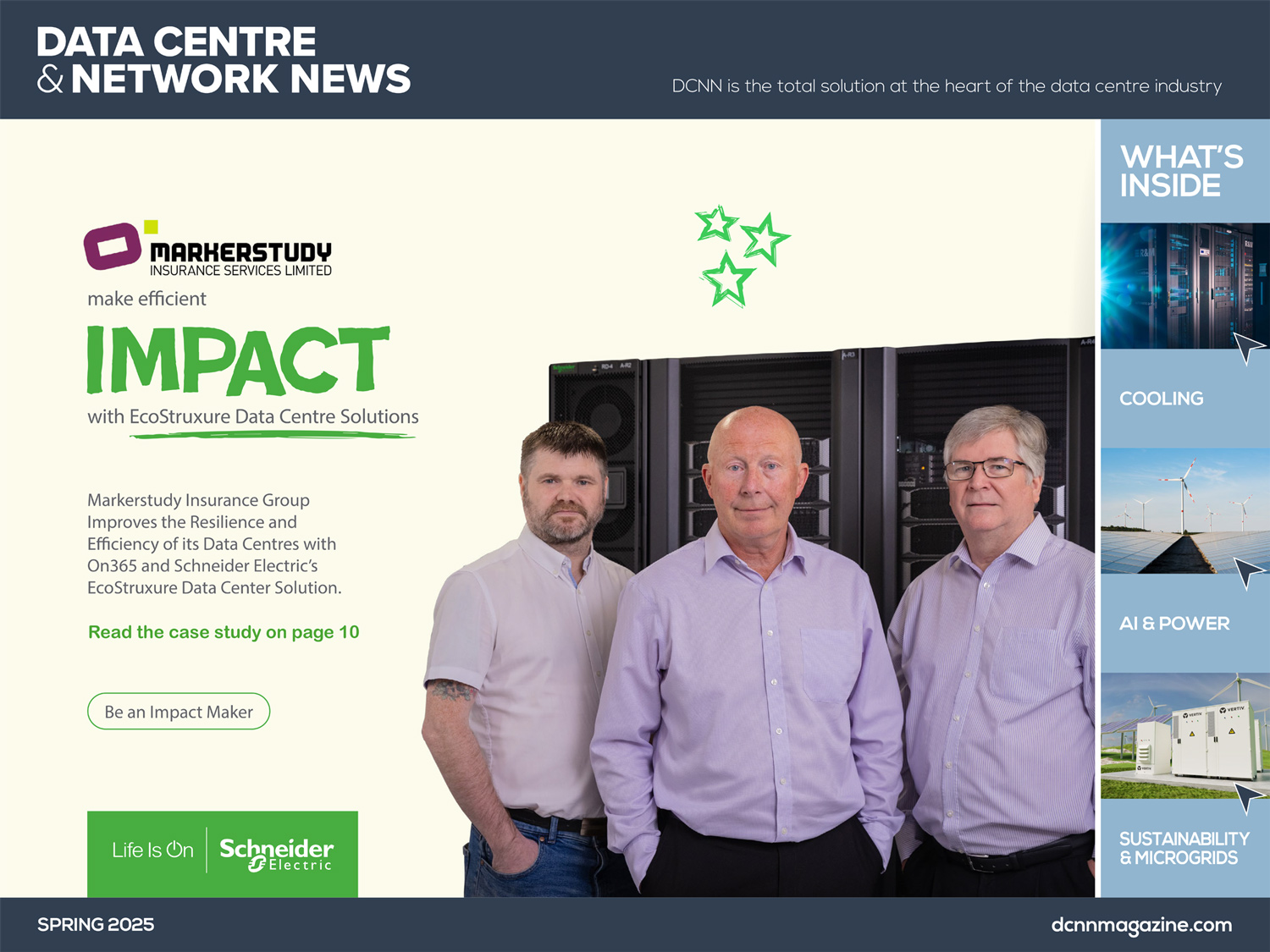Artificial Intelligence
Artificial Intelligence
Data
Events
IT
Security
Global Cyber Summit highlights Ukrainian experience amid geopolitical tensions
Nineteen Group, organiser of International Cyber Expo, has announced its programme for the annual Global Cyber Summit, sponsored by Sonatype, Opentext and Infoblox, and hosted at Olympia London on 26 and 27 September 2023. The summit returns with greater international appeal. Among other topics of discussion, guest speakers will provide the Ukrainian perspective on cyber security, in light of recent geopolitical events.
With opening remarks by Professor Ciaran Martin CB, Chair of International Cyber Expo’s Advisory Council, the Global Cyber Summit assembles the industry’s great minds to review ongoing cyber threats, priorities and challenges. Uniquely, the programme this year invites advisors closely associated with Ukrainian government agencies to present their invaluable insight into the reality and impact of Russian cyber attacks on the country and beyond.
Special guest speakers include, Oksana Kharchenko, a member of YouControl, who will delve into the challenges of managing sanctions risk in the current geopolitical setting; and Andrew Hural, Director, MDR of UnderDefense, who will reflect on the last 500 days of Russian cyber operations, determining the successes and failures of their espionage.
Here are a few agenda highlights:
Nicola Whiting MBE, co-owner of Titania Group, will reveal why diversity and inclusion efforts might be stalling and provide a new framework.
Theresa Deumchen, Tech Policy Associate at Global Counsel, will examine the regulatory landscape concerning generative AI.
Alexsander Gorkowienko, SecurityLabs’ Senior Managing Consultant at Spirent Communications, will explain how EU security regulations, such as the NIS 2 Directive, might affect businesses across the region.
Jake Moore, Global Cyber Security Advisor at ESET, will shed light on his attempt to manipulate recruitment staff, land a job inside a company and gain full access to their data.
Stewart Bertram, Head of Cyber Threat Intelligence at Elemendar, will utilise a mix of case studies and theories to expose the crossover between misinformation and cyber threat operations.
Rashik Parmar, Group CEO of BCS, The Chartered Institute for IT, and Dr Saritha Arunkumar, IBM Public Cloud Worldwide Technical Leader - Security, will sit together on a panel to address the question: What does the rise of AI and quantum computing mean for the future of cyber security?
Charlotte Hooper, Helpline Manager at The Cyber Helpline, will highlight the impact of cybercrime on individuals and what can be done to support them.
Attendees can also take advantage of scheduled talks at the collocated International Security Expo. In fact, Joel Aleburu at Microsoft, will be speaking here about the role of cyber espionage in terrorist activities on the first day of the event, while Joe Wrieden, Intelligence Analyst at Cyjax, will assess the key role of Advanced Persistent Threats(APTs) in serious and organised crime on the second day.
All sessions are CPD Certified.
To register for free as a visitor: https://ice-2023.reg.buzz/dcnnAs press: https://www.internationalcyberexpo.com/press-pass-registration
Click here for latest data centre news.
Isha Jain - 1 August 2023
Artificial Intelligence
Data
News
The Data Lab Community grows its online ecosystem
The Data Lab Community has expanded with AI and data skills in more demand than ever and interest in the sector growing internationally.
As part of its continued evolution, and to provide further value to its members, Scotland’s innovation centre for data and AI has launched a new premium membership subscription. The offering includes additional benefits without removing existing features that will remain freely available to both new and existing members.
Members who sign up for the premium tier will receive additional benefits, including discounts for The Data Lab’s flagship events, professional development opportunities and the ability to share job vacancies with thousands of students and professionals.
Originally launched as a response to the quickly evolving and extremely challenging pandemic landscape, its growing community recently reached a significant milestone, surpassing 3,000 members. It has become a forum for academics, students and professionals to connect and collaborate on data and AI related projects. It has subsequently provided fertile territory for those looking to start or develop careers in this industry.
The focus on online collaboration has proven particularly attractive to the international audience, with members from 67 countries. This growth has seen the company become a central part of the innovation centre’s strategy to engage and inspire Scotland’s AI and data sector internationally.
Additionally, it has helped to facilitate more than 1,300 job opportunities for its members, the equivalent of almost 60 roles every month, since September 2021. The latest figures cover job opportunities that have been shared on a job forum to which members have exclusive access. The online community has helped to bridge the widening AI and data skills gap that threatens to restrict the growth of a burgeoning Scottish success story.
Click here for latest data centre news.
Isha Jain - 31 July 2023
Artificial Intelligence
Data
Machine Learning
News
Panasas helps drive academic research initiatives
Panasas has announced that a number of leading academic research institutions are using storage solutions from the Panasas’ ActiveStor portfolio to support their modern high-performance computing (HPC) environments.
Along with many university research institutions, the Minnesota Supercomputing Institute (MSI), the UC San Diego Centre for Microbiome Innovation (CMI), and LES MINES ParisTech, have trusted it to deliver the necessary data storage and management capabilities to support the HPC and AI workloads fuelling their research advancement.
Modern HPC environments fast tracking academic research
According to Hyperion Research, total HPC spending in 2022 reached $37bn and is projected to exceed $52bn in 2026. A key growth driver is that an increasing number of organisations and countries see the value of innovation and investing in R&D to advance society, grow revenues, reduce costs and remain competitive.
High-performance data storage is the lifeblood of an academic research infrastructure. These research institutions cannot afford lost data, as it could set back the research program by months or even years. As these organisations simultaneously run and analyse data sets across multiple HPC and AI/ML applications with varied IO patterns and file sizes, they require an always-on storage solution that can manage the capacity of these bandwidth-intensive and mixed workloads while scaling to support growth.
The Panasas’ ActiveStor portfolio of modern HPC storage solutions provides the reliability research teams need to keep their projects on track while eliminating the management burdens associated with roll-your-own and open-source storage systems. Its solutions currently power innovative research in agriculture, astrophysics, bioinformatics, climate research, computational chemistry, genome analysis, geophysics, high energy physics, machine learning, materials science, molecular biology and more.
Here are a few examples of how Panasas is helping advance research within some of the most prestigious academic institutions across the globe:
The Minnesota Supercomputing Institute (MSI) has relied on its storage for many years to support its growing HPC and AI research initiatives. Recently adding 10PB of additional storage, the institute leverages the company’s ActiveStor Ultra appliances running the Panasas PanFS parallel file system for a single-tier architecture that enables it to easily manage the unique set of mixed workloads that multiple research groups carry out every day.
The UC San Diego Centre for Microbiome Innovation (CMI) has used it to build the data foundation it needed for continued research excellence, including the power to expedite data exploration and discovery with better control, usability and optimal uptime.
The TU Freiberg is utilising Panasas as its parallel scratch file system.
Rutherford Appleton Laboratory (RAL) team consolidated its storage onto Panasas ActiveStor and gained the scalability, performance and manageability that its workflows demanded, freeing up researchers’ time to spend time working on the data rather than managing and moving it. Today, a single IT manager spends half their time supporting 1,500 nodes.
Click here for latest data centre news.
Isha Jain - 28 July 2023
Artificial Intelligence
Data
News
Security
NCSC CEO warns AI must improve cyber security
The CEO of the National Cyber Security Centre has called for robust security systems in the early development of AI, amidst concerns that proper security measures are being overlooked.
As businesses race to develop new AI products, a former intelligence chief explains that malicious attacks could have a “devastating” effect due to the rate AI is being developed in comparison to security.
AI is set to play a huge role in many aspects of everyday life, from our homes and cities to high end national security, however, as businesses rush to develop products and secure their position in the market, the risk of misuse could act as a threat.
The news follows the UK’s AI whitepaper, released earlier this year, which aims to put the UK on course to be the best place in the world to build, test and use AI tech after investing £2.5bn in the emerging technology since 2014.
Suid Adeyanju, CEO of RiverSafe, comments, “AI-enabled cyber attacks present new challenges for security teams, adding increased complexities for organisations when protecting their devices and their data. Businesses evaluate their defence strategies to adapt, boosting their cyber security capabilities to ensure they are prepared for when an attack happens, either directly against their organisation or along the supply chain.”
“Upskilling cyber workforces and ensuring diverse teams that can offer new and innovative ways of thinking to elevate expertise is an important part of the solution to defend against the new AI-powered threats. For businesses to protect themselves against the imminent and increasing threat of AI in cyber, strategies must be reassessed and more robust processes must be introduced.”
Lindy Cameron, CEO of the NCSC, comments, "The scale and complexity of these models is such that if we don't apply the right basic principles as they are being developed in the early stages, it will be much more difficult to retrofit security."
Click here for latest data centre news.
Isha Jain - 26 July 2023
Artificial Intelligence
Data
Machine Learning
Over 1,300 business leaders declare AI as a force for good
More than 1,300 experts have signed an open letter to collectively emphasise the positive potential of artificial intelligence (AI) and relieve concerns about its impact on humanity.
Coordinated by BCS, the open letter aims to challenge the pessimism surrounding AI and promote a more optimistic perspective.
According to Rashik Parmar, CEO of BCS, the overwhelming support for the letter demonstrates the UK tech community's resolute belief that AI should be viewed as a "beneficial force" rather than "nightmare scenario of evil robot overlords".
This comes standing in opposition to the recent letter signed by influential figures, such as Elon Musk, which called for a pause in developing powerful AI systems, citing the perceived "existential risk" posed by super-intelligent AI.
The BCS signatories include experts from various businesses, academia, public institutions and think tanks, their collective expertise and insights highlight the myriad positive applications of AI.
Sheila Flavell CBE, COO of FDM Group, says, “AI can play a key role in supercharging digital transformation strategies, helping organisations leverage their data to better understand their business and customers. As the UK continues to show its commitment to developing AI for good, it will help increase Britain’s position as a tech superpower and positively bolster the economy as its usage becomes widespread. In order to harness the full power of AI, the UK needs to develop a cohort of AI-skilled workers to oversee its development and deployment, so it is important for organisations to encourage new talent, such as graduates and returners, to engage in education courses in AI to lead this charge.”
Hema Purohit, a specialist in digital health and social care for BCS, emphasises AI's ability to enable early detection of serious illnesses, like cardiac disease or diabetes, during eye tests.
To further support Britain’s position as a global exemplar for high quality, ethical and inclusive AI practices, UK Prime Minister, Rishi Sunak will host a global summit on AI regulation this autumn.
Challenges are emerging, including the potential automation of up to 300 million jobs, prompting companies to pause hiring in specific roles, but these must be approached pragmatically.
Regulations will be a vital safeguard against the misuse of AI, instead of hasty and unregulated proliferation. As the world grapples with the powers of AI, these expert voices will provide valuable insights and perspectives to guide its responsible development and implementation.
Click here for more latest news.
Isha Jain - 25 July 2023
Artificial Intelligence
Big Data
Data
Data Centres
Infrastructure
Infrastructure Management
News
atNorth announces highest revenue to date
atNorth has announced a group income of SEK 560 million (EUR 53 million) as it publishes its 2022 annual accounts. This figure represents a 44% increase in revenue from 2021 and further growth is expected in the coming years.
The company currently operates six data centres based in Iceland, Sweden and Finland. It is planning further state-of-the-art sites in the coming years. atNorth‘s growth calls for extensive investment and it has secured access to capital for this purpose. The investment for the year 2022 amounted to about SEK 220 million (EUR 20 million), and it is already evident that the 2023 level of investment will be significantly higher.
Eyjólfur Magnús Kristinsson, CEO of atNorth, says, "In recent years, we have built an enormous wealth of knowledge. Our customers value our services and it is core to atNorth's good reputation." He also commends the support of the company‘s sponsor, Partners Group, that acquired the majority of the company's shares at the beginning of 2022.
As digital transformation and the use of AI and other big data projects escalates, businesses are becoming increasingly reliant on supercomputers to perform ever more complex calculations. The resulting need for high performance data centre and supercomputing services has led to an exponential increase in demand in recent years.
atNorth continues to promote the Nordic region as a superlative location for investment in digital infrastructure, recently winning the ‘Tech Capital Location’ award for Iceland as a result of its advantageous climate, favourable business environment and cutting-edge infrastructure. Eyjólfur comments, “Iceland is truly on the map, and with our best-in-class data centres, outstanding customer service and proficient marketing communications, atNorth is proud to have created a desirable position in the market.”
Isha Jain - 12 July 2023
Artificial Intelligence
Cloud
Data
News
Security
VMware unveils research on NHS data storage
VMware has unveiled a research sharing that the majority (87%) of UK consumers believe it is important that their NHS patient data is stored in the UK.
The study of more than 2,000 UK citizens has revealed that people still have cyber security concerns when it comes to where their personal and sensitive data is stored. Of those who stated it is important for their data to be stored in the UK, more than a third (39%) think that their data stored within the country’s national borders would ensure it complies with UK data privacy regulations. A fifth (22%) do not trust other countries to safeguard their data as well as the UK, and 21% think it will be less susceptible to foreign cyber threats or access foreign entities.
Despite this, the research shares a good level of trust in the NHS when it comes to storing and analysing patient data. For instance, 59% of respondents expressed confidence in the NHS's ability to safeguard their sensitive information. But when asked about where their data is stored, most UK public had doubts on their data residing outside of their national boundaries.
Businesses share the same attitude. 42% of business leaders are extremely concerned about their critical data being managed by US cloud providers, and 62% have expressed that their current clouds are not meeting their data sovereignty requirements, according to the latest IDC research.
Many NHS and social care providers today use non-national public clouds. This means that patient data is currently hosted in a provider currently deemed adequate by the UK, however, if this is a non-national provider, the data could be subject to external jurisdictional control.
“This consumer opinion matters as it echoes business sentiment. These findings demonstrate the increasing importance of data integrity and sovereignty in helping the NHS, among other highly regulated industries, realise and unlock the true value of their sensitive and critical data," says Guy Bartram, Cloud Evangelist EMEA, VMware. “By embracing cloud sovereignty, the NHS can build public trust and assertively maintain governance, fortify data protection and help unlock the true value of critical and sensitive patient data in delivering patient services.”
"While there are vast rewards to be harvested through applying AI to healthcare data, we have to remember that each data point relates to a patient, and every patient should trust that their privacy is maintained,” says Darren Adcock, Senior Product Manager, Redcentric. “By harnessing the power of AI and advanced technologies within a secure and sovereign cloud framework, the NHS ensures that groundbreaking advancements in healthcare never compromise patient privacy and trust. Sovereign clouds serve as a pivotal enabler, allowing the NHS to drive progress responsibly, ethically, and with the utmost dedication to patient wellbeing.”
Sovereignty extends beyond where data is stored, but also how it is used by platforms such as AI, which analyses the data to feed algorithms. The general public surveyed hold diverse opinions regarding AI in healthcare, with 45% open to its use for improved services and 44% happy with the NHS using the technology to process their patient data, if it helped the NHS to process diagnostic tests faster. However, concerns exist, with 25% saying they are against the NHS using AI to process their patient data.
“Ongoing digital transformation and the increased use of emerging technologies such as AI, have spurred both excitement for true innovation to revolutionise our NHS, but also a new urgency for how this boom in data will be securely managed and stored,” says Dr Will Venters, Associate Professor of Information Systems, London School of Economics. “With the increased use of multiple clouds to create, store and distribute apps, which the NHS needs, relies on from frontline clinicians through to optimising operations, it is essential to patient trust that the NHS protects sensitive patient data, and this can be achieved by protecting it with sovereign clouds. AI has created new data opportunities so it is critical the NHS can make better use of its data, to build a resilient and patient-centric healthcare system that the UK needs.”
Isha Jain - 6 July 2023
Artificial Intelligence
Cloud
Data
Snowflake and NVIDIA to help businesses build AI applications
At the Snowflake Summit 2023, Snowflake announced that it is partnering to provide businesses of all sizes with an accelerated path to create customised generative AI applications using its own proprietary data, all securely within the Snowflake Data Cloud.
With the NVIDIA NeMo platform for developing large language models (LLMs) and NVIDIA GPU-accelerated computing it will enable enterprises to use data in their accounts to make custom LLMs for advanced generative AI services, including chatbots, search and summarisation. The ability to customise LLMs without moving data enables proprietary information to remain fully secured and governed within the Snowflake platform. “Data is essential to creating generative AI applications that understand the complex operations and unique voice of every company,” says Jensen Huang, Founder and CEO, NVIDIA. “Together, NVIDIA and Snowflake will create an AI factory that helps enterprises turn its own valuable data into custom generative AI models to power ground-breaking new applications, right from the cloud platform that they use to run their businesses.”
The collaboration represents a new opportunity for enterprises. It will enable utilisation of its proprietary data — which can range from hundreds of terabytes to petabytes of raw and curated business information — to create and fine-tune custom LLMs that power business-specific applications and services.By integrating AI technology, customers can quickly and easily build, deploy and manage customised applications that bring its power to all parts of its business across a variety of use cases.
“More enterprises than we expected are training or at least fine-tuning their own AI models, as they increasingly appreciates the value of their own data assets,” says Alexander Harrowell, Principal Analyst for Advanced Computing for AI at Technology Research Group, Omdia. “Similarly, enterprises are beginning to operate more diverse fleets of AI models for business-specific applications. Supporting them in this trend is one of the biggest open opportunities in the sector.”
Custom models for healthcare, retail, financial services and more
With over 8,000 customers worldwide, the Snowflake Data Cloud gives enterprises the ability to unify, integrate, analyse and share data across its organisations, as well as with customers, partners, suppliers and others. In addition, customers can build and share leading data applications at scale with the data cloud.The company’s unified platform offers industry-specific data clouds to help deliver innovative solutions across multiple verticals and lines of business.
The collaboration will further enable customers to transform these industries by bringing customised generative AI applications to different verticals with the data cloud. For example, a healthcare insurance model could answer complex questions about what procedures are covered under various plans. A financial services model could share details about specific lending opportunities available to retail and business customers based on a variety of circumstances.
Isha Jain - 27 June 2023
Artificial Intelligence
Data
Data Centres
Kao Data partners with Zayo to expand connectivity options
Kao Data has announced that it has signed a partnership with Zayo to expand the connectivity solutions at its data centre campus in Harlow.
The partnership will see Zayo deploy two new points-of-presence (PoP) at its KLON-01 data centre, which will directly enable new multi-gigabit lit and dark fibre capabilities. The new agreement and network connectivity will also allow enterprise organisations to connect directly from the US to Europe, while bypassing London’s busy Internet routes via Zeus-Zayo’s ultra-low-loss, subsea fibre optic cable, which runs from the UK to the Netherlands.
Zayo operates one of the industry’s largest fibre networks, and owns a Tier 1 IP backbone spanning 141,000 miles across North America and Europe. Its network provides business and mission-critical connectivity to support the digital economy, and its capabilities will further strengthen Kao Data’s mission to provide a suite of world-class connectivity options at its Harlow campus.
Its Harlow campus is renowned for high-performance computing (HPC) and artificial intelligence (AI) systems. Its infrastructure platform, for example, connects prestigious research and financial services organisations into Europe and other global destinations.
The campus is also home to the supercomputer, NVIDIA’s Cambridge-1, as well as several high density AI workloads and grid-computing deployments from Tier 1 financial services organisations. Resilient, low-latency connectivity is crucial to facilitate the large data transfers synonymous with this form of computing, and Zayo’s network will play a key role in this pursuit by offering connectivity across global financial hubs.
“As dependency on digital infrastructure continues to accelerate, it is vital that we provide customers working across cloud, enterprise and financial services with diverse and resilient connectivity solutions that minimise latency,” says Spencer Lamb, CCO, Kao Data.
“Zayo’s extensive network provides our own and our partners’ customers across financial services, AI, cloud, and enterprises with the speed, reliability, and diversity they need to be successful and gain a competitive advantage in today’s market. We are happy to partner with Kao Data on our shared efforts to reshape digital connectivity and ensure our customers stay ahead of the curve and thrive in today's fast-paced digital ecosystem," says Yannick Leboyer, Chief Operating Officer at Zayo Europe.
Isha Jain - 26 June 2023
Artificial Intelligence
Infrastructure Management
STT GDC and Firmus to build sustainable AI factories
ST Telemedia Global Data Centres (STT GDC) has announced a significant investment into a global venture with Firmus Technologies.
The venture is to be based in Singapore and will see the launch of a GPU-centric Infrastructure as a Service (IaaS) offering focused on deep learning AI and visual computing workloads, to be known as Sustainable Metal Cloud (SMC).
SMC will deliver bare-metal-service access to high-performance AI clusters, which include some of the world’s most advanced workload accelerators including GPUs and high-speed networking from NVIDIA for energy-efficient computing.
It will leverage Firmus’ proprietary, scaled, immersion-cooled platform, the HyperCube, to deliver sustainable AI factories that are all at once sustainable, scalable, high-performance and cost-effective.
Within the HyperCube, Firmus will operate a fleet of high-performance servers provided by OEM partners including Supermicro. It unlocks access to world-class AI tools and hardware in a highly available way.
The SMC is being launched in Singapore, India and Australia in 2023, with the Singapore AZ (SIN01) expected to be live in H2 2023.
The combination of Firmus’ platform, paired with STT GDC’s highly efficient data centre infrastructure, will result in AI workloads running with a lower PUE, lower CO2 emissions and higher petaflops per watt.
“The compound growth in forecasted energy consumption is an existential threat to the data centre sector. Data centre operators and their customers must be prepared to embrace and support new cooling solutions and expand the services they offer beyond traditional air-cooled colocation if they are to host AI GPU platforms in a sustainable manner. The evolution of the data centre into AI factories of the future will fundamentally change the way that all infrastructure operators are thinking about the design and operation of their facilities. STT GDC’s foresight and long-term vision made them the ideal global partner for Firmus’ highly developed solution,” says Ted.
“The future of data centres will rely on the ability to provide both exceptional performance and highly sustainable services at scale. From our beginnings in Singapore almost 10 years ago, we now have scaled the business to cover 10 geographies. We are immensely pleased to enhance our core co-location offering to include the latest GPU-based bare-metal services, empowering our customers with access to the next generation of high-performance computing which will be so critical in the AI revolution. These high-performance services are a key component of the critical infrastructure needed to support the plethora of AI use cases that will be critical to business, governments and society in years to come,” says Bruno Lopez, President and Group Chief Executive, ST Telemedia Global Data Centres.
Isha Jain - 22 June 2023

Head office & Accounts:
Suite 14, 6-8 Revenge Road, Lordswood
Kent ME5 8UD
T: +44 (0)1634 673163
F: +44 (0)1634 673173










